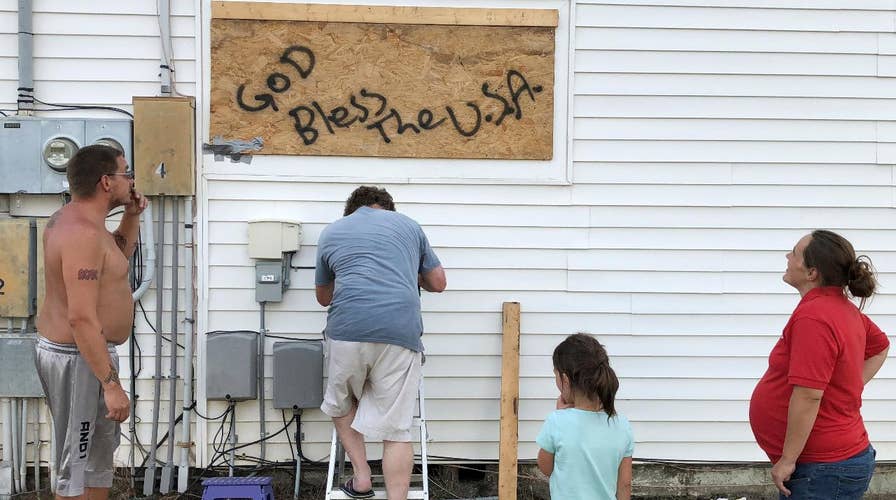How South Carolina is preparing for flooding after Florence
South Carolina residents facing record floods with Hurricane Florence.
As the southeastern coast braces for the impact of Hurricane Florence, a powerful Category 1 storm, those who live further inland should expect to experience treacherous weather conditions as well.
Florence’s winds and rains continued to batter the Carolinas Friday morning. Forecasters warned as the storm continues to widen – and it is likely to linger along the coast for days – the hurricane will bring seawater surging onto land along with torrential downpours.
Those who live more inland could experience flash flooding, potential tornadoes and mudslides, forecasters said.
“Just because you’re not on the coast doesn’t mean you won’t get some big impact.”
Up to 10 inches of rain is predicted as far west from the Atlantic Ocean as Charlotte, N.C., the NHC’s Ken Graham said Thursday. And 15 counties in North Carolina were under a tornado watch by Thursday morning, including: Beaufort, Carteret, Craven, Dare, Duplin, Greene, Hyde, Jones, Lenoir, Martin, Onslow, Pamlico, Pitt, Tyrrell and Washington Counties.
“Just because you’re not on the coast doesn’t mean you won’t get some big impact,” Graham said.
Just inland in North Carolina, the hurricane is pushing water up the sounds and rivers, Joel Cline, a tropical storm program coordinator with the National Oceanic and Atmospheric Administration (NOAA), told Fox News. And in the Outer Banks, there are only three inlets, creating a bottleneck effect holding water upstream for an extended period of time.
As the storm continues to track toward western North Carolina and upstate South Carolina, heavy rains in the mountains could trigger mudslides due to the region’s topography, Cline added.
The hurricane brings “an impact that can potentially put your life at risk, so you need to plan for it,” Cline said.
AS HURRICANE FLORENCE NEARS, LIVE SURF CAM VIDEOS SHOW IMPACT ON CAROLINAS
Janey Camp, a research associate professor of civil and environmental engineering at Vanderbilt University, said the “biggest concern” for those not along the coast “is the deluge of precipitation that comes with” hurricanes.
“Hurricanes don’t move through like typical storm events; they are these massive events with a lot of rainfall, and sometimes they move fairly slowly once they make landfall and drop a lot of rain on communities that may not have infrastructure prepared to handle that,” Camp told Fox News.
She also said residents don’t need to live next to a river or creek to experience catastrophic flooding in their basements. Soil can become so saturated with all the rain from the hurricane that flooding can still occur, Camp said.

